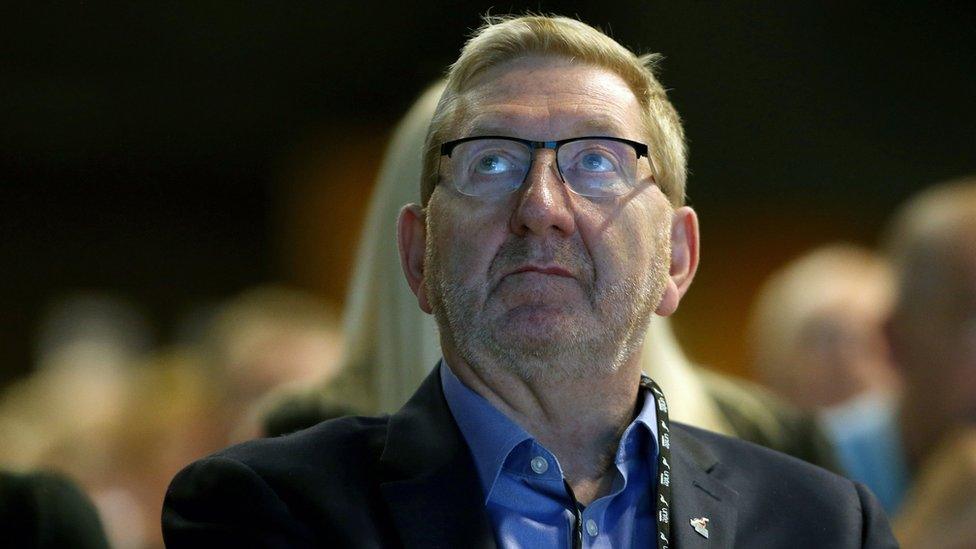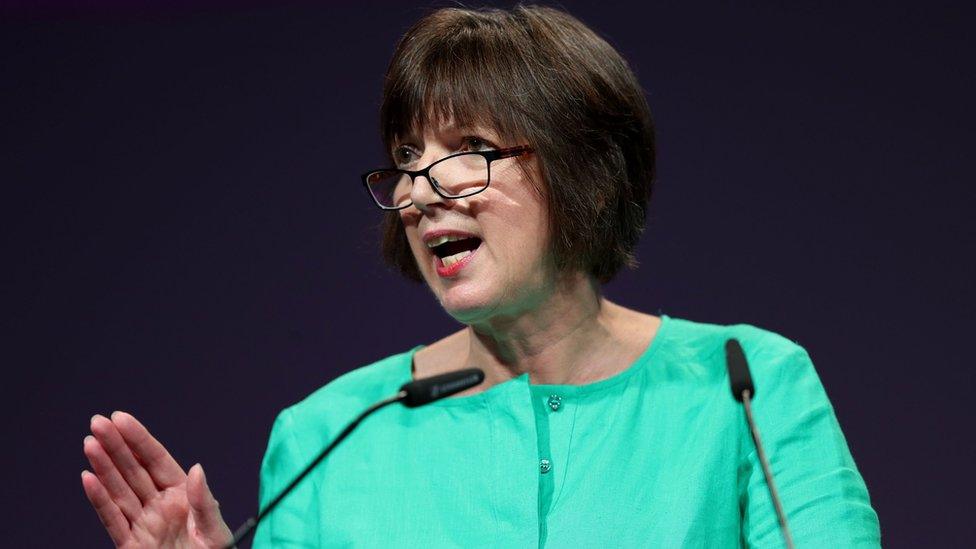Public pay: What will unions do next?
- Published

As this year's TUC conference draws to a close, counter-intuitively the government has forged a high degree of unity within the union movement.
Expectations on the lifting of the pay cap were raised, then dashed, when the awards to police officers were above the pay cap but palpably below inflation. The unions feel they are winning the argument on pay after seven years of restraint.
But there is less unity over how to respond if the government fails to use its new flexibility to award bigger increases next year or if any increases come at the expense of existing departmental budgets rather than from the Treasury.
So the unions will be poring over the small print of the November Budget.
They agreed this week to push for a 5% increase for public service workers and to co-ordinate strike action if necessary. But scratch beneath the surface and there are significant tactical differences.
I fought the law…
First there is Len McCluskey's oft-repeated call for illegal industrial action. He first advanced the case for this in 2015 when the then majority Conservative government pushed ahead with plans to increase the threshold for strike action.
But there was, to put it mildly, huge frustration from other union leaders when he reminded shop stewards at a meeting open to the public and the press on Sunday that he had changed his union rule book to allow members to strike outside the law.
Both the BBC and Sky reported this. But the story, Lazarus-like, rose again when Len McCluskey warmed to his theme in a pre-recorded interview for the Today programme two days later.
The reaction in Brighton from senior union officials ranged from groans - "he plays into the stereotype of a union leader" to frustration - "talk of this is a diversion from our agenda" - and to anger "he was just worried he wasn't getting enough media... I'm extremely angry". ("extremely" is a polite form of the word that was used).
But however unwelcome his intervention, the question is whether there is a realistic prospect of illegal action.
TUC sources put the likelihood between "zero and nothing".
What's significant is that other union leaders every bit as left-wing as Len McCluskey - and maybe even more so - are not singing from the same hymn sheet. Sure, they want the union laws scrapped. But they believe the level of frustration amongst their members over pay restraint would mean the government's higher thresholds for industrial action would be exceeded.
The left-led civil service union the PCS will hold a consultative ballot next month to test the water. And some union leaders fear their funds could be sequestered if the McCluskey rhetoric ever became reality. So it fails the cost/benefit test.
They want the focus to remain on the pay issue, not illegality. Indeed one union leader refused all media bids for interviews yesterday in case his appearances were dominated by questions about illegal strikes rather than public sector pay.
Let's stick together?

Frances O'Grady said co-ordinated strike action was a "last resort"
However, the second option - co-ordinated legal action, last carried out in 2011 - is real.
The PCS, GMB, and the Fire Brigades Union, amongst others, met to discuss this privately here at the TUC yesterday.
There is anger that the 55% of public service workers not covered by Pay Review Bodies might get left behind.
Co-ordinated action is unlikely to begin until early next year - once the unions have assessed the generosity or otherwise of the budget and further tested the mood of their members.
But while co-ordinated action is the official policy of the TUC, its general secretary Frances O'Grady stressed to me that this was very much "a last resort".
And a long-standing official in one of the big public service unions was cautious about co-ordinating action with other unions and extremely sceptical it would happen at all.
Under pressure
Indeed some unions - and one big public sector union in particular - favour a more subtle option. Pleased as they are with the Corbyn-led Labour Party's willingness to support co-ordinated strikes, the focus of their lobbying efforts are Conservative MPs.
They see Tories who heard voters' frustration with pay restraint on the doorstep at the election as potential allies. The unions were delighted when some Conservatives who had worked in the public services or the military before entering Parliament spoke out in favour of lifting the pay cap and they feel they can pile more pressure on backbenchers to in turn pressure the government to make further concessions.
Combined with a public campaign, they feel this might be more effective than asking already hard-pressed workers to lose pay by going on strike.
But it's easy to overdo the differences. The unions do stand united in their message that pay restraint has run its course and this week's announcements seem only to have strengthened their resolve.